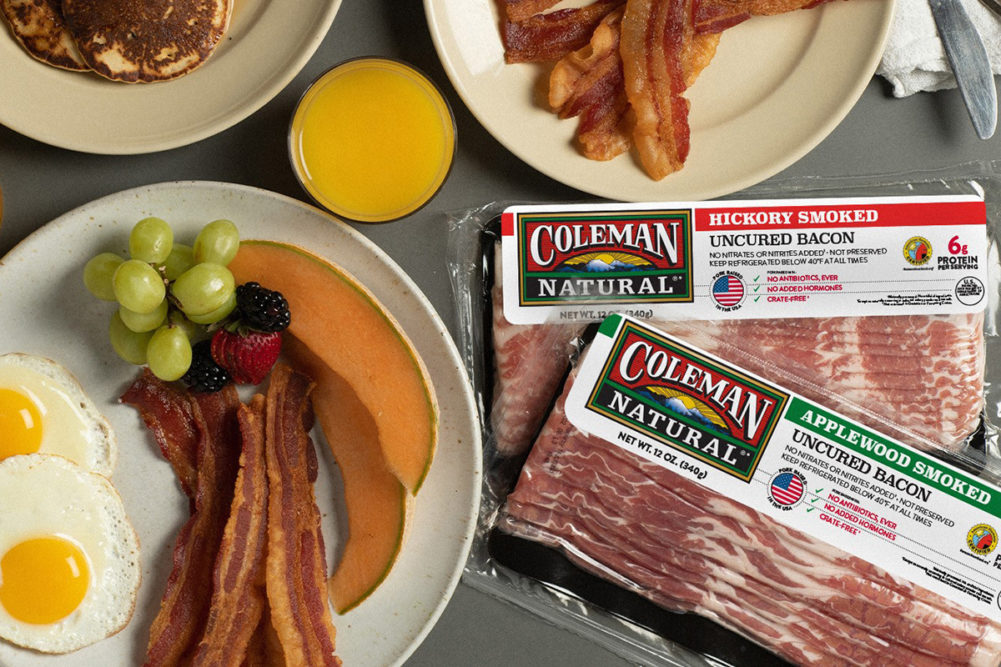With such rising interest in all-natural and organic products, marketing and merchandising these items is fairly easy.
“Both the meat case and full-service counter play integral roles in consumers’ journeys for all-natural protein choices,” said Jim Rogers, senior vice president of sales at Arkansas City, Kan.-based Creekstone Farms. “We advise supermarkets to diversify their offerings by incorporating a range of claims-based meat products and to collaborate with their suppliers to have a clear understanding of their product offerings. Our expertise is in small- and mid-sized retailers and we strive to build a relationship with each one of our partners and provide tools like training cards to educate retail staff and develop point-of-sale materials to help drive their sales.”
Jeff Tripician, president and CEO of Grass Fed Foods, suggested retailers provide more POS materials and recipe cards, which can be really helpful, especially for grass-fed beef, which tends to have a slightly different flavor profile than commodity beef, and can be intimidating to home cooks.
“We create all kinds of sales materials for our customers that educate and inspire consumers,” he said. “Also, our price points keep quality proteins accessible to most families and make them feel great about their food choices.”
J.D. Enrici, vice president sales and marketing at Golden, Colo.-based Coleman Natural Foods, noted consumers are demanding transparency in the foods they buy and want easy to read labels to find the best foods for their families.
“One thing we’re seeing is a lot of ‘all natural’ label claims; however, consumers should be aware that all natural doesn’t always mean the product is made without antibiotics or free from added hormones,” he said. “Supermarkets would be best served to carve out a section of no antibiotic ever, humanely raised premium fresh pork in their meat case to designate a section for those consumers. The same thought process could be utilized in the packaged meat section to carve out a premium all-natural and/or organic assortment of items.”
To capture shoppers’ attention, Lori Dunn, vice president of retail sales for Thomas Foods International USA, recommends retailers display products with these production attributes prominently.
“Consumers are interested in learning more about the food they consume, so any additional information beyond the attributes is helpful,” she said. “For example, a QR code linking to videos with brand story information or useful preparation tips help inspire consumer loyalty and simplify their decision making. Highlighting nutritional content or production claims such as all-natural or antibiotic-free is a valuable opportunity to connect with shoppers who are seeking protein choices with these attributes.”
Personal health, animal welfare, concern for the planet and social responsibility affect the food and meat/poultry choices of many Americans, fueling an interest in transparency. The desire to know where food in general comes from is very closely correlated to wanting to make better choices.
“Consumers want to know that the meat they are choosing is best for their families,” Enrici said. “Choosing all-natural, humanely raised, clean ingredient meats raised in the USA without antibiotics or added hormones is one way to achieve these goals.”
This article is an excerpt from the March 2024 issue of Supermarket Perimeter. You can read the entire All-natural Meat feature and more in the digital edition here.

